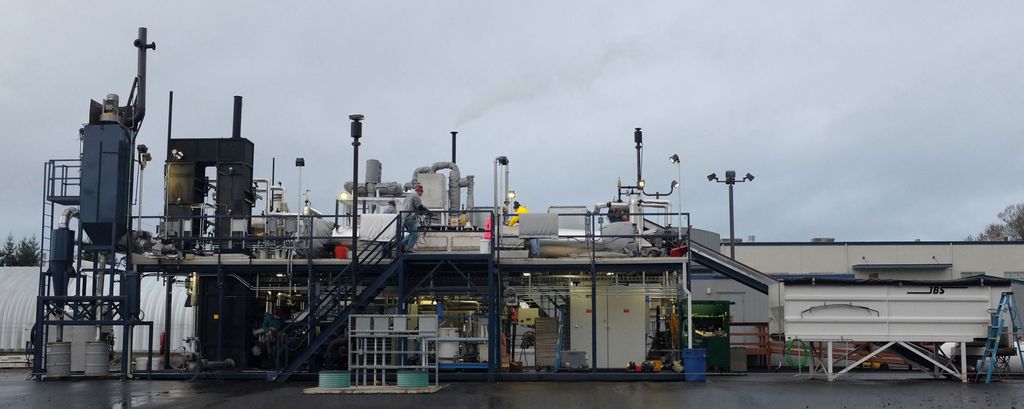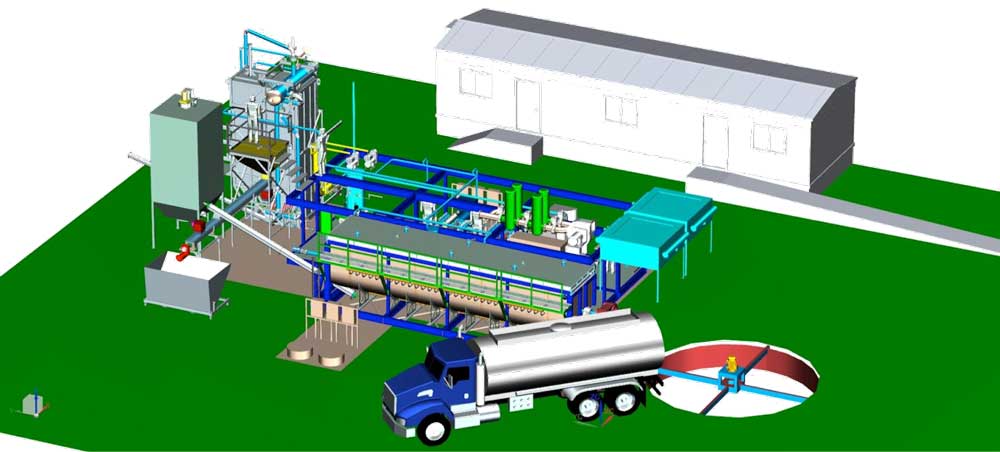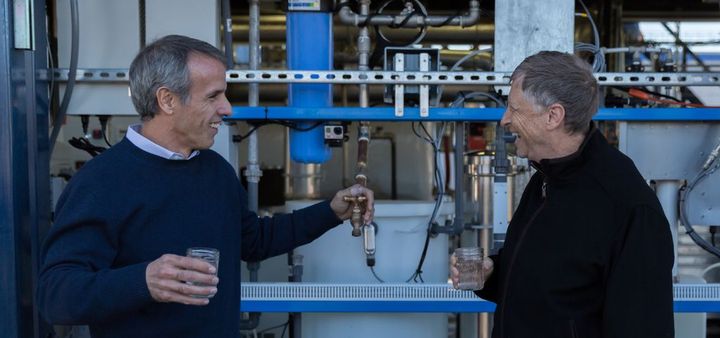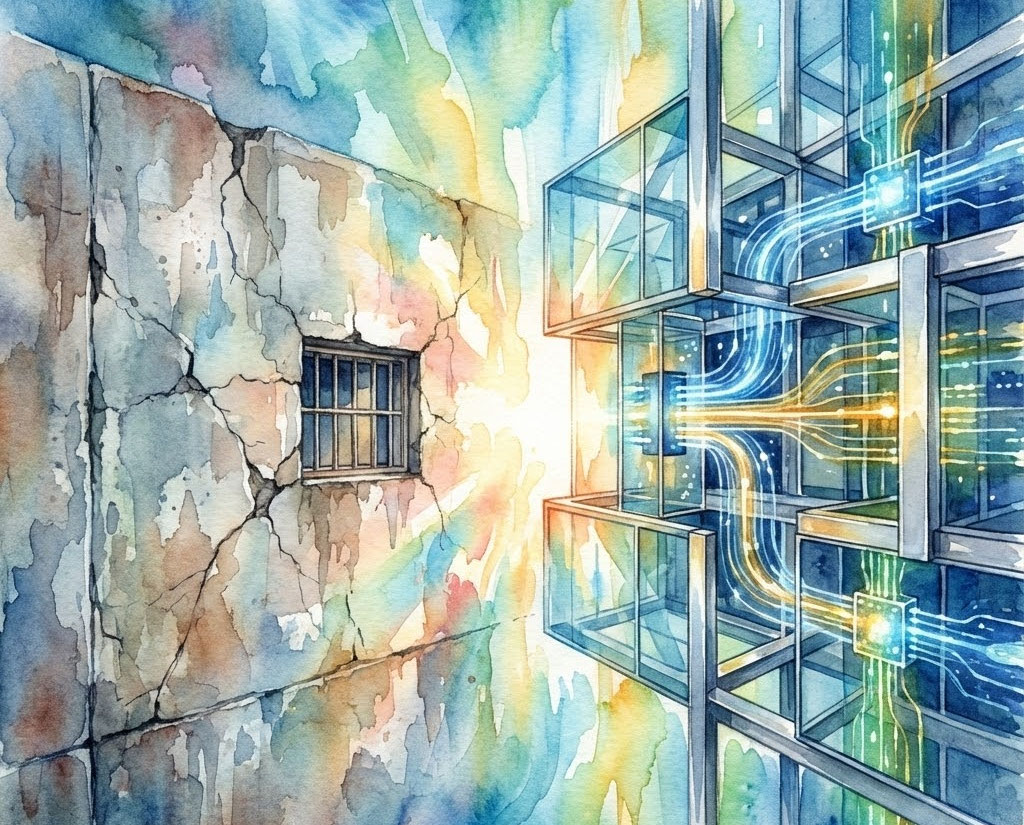
When it comes to poverty, underdevelopment, and infant mortality, one of the main contributors is a lack of access to clean drinking water. Today, roughly 2.5 billion people around the world live without proper sanitation or utilities, resulting in the deaths of 800,000 children a year and preventing others from developing to full maturity. And where running water does exist, sewage is most often untreated and simply dumped into nearby rivers and lakes, resulting in contamination and the spread of disease.
Remedying the problem is also a major challenge since many of these areas also have no access to electricity and the necessary infrastructure to maintain sewage treatment plants, sanitation or septic systems. In short, ensuring that people all over the world have access to clean drinking water requires an innovative approach that looks beyond a quick-fix solution, and takes the needs and conditions of those being affected into account.
That's where the Omni Processor comes in, a steam engine-powered water purifier/electrical generator created by Seattle-based Janicki Bioenergy. Basically, this system takes untreated sewage - which is made up of 20% biomass and 80% water - and then boils it to create water vapor and dry waste. The dry waste is then burned at 1000 °C, which in turn drives the generator and produces up to 300 kW of electricity. The water vapor is then condensed and fitlered, producing clean drinking water.

According to their website, a single S100 unit is capable of producing up to 10,800 liters of potable drinking water per day. But more impressive is the fact that only 50 kW are needed to purify the waste, which leaves another 250 for future use or as power for the local community. This means, in essence, that the machine is capable of powering itself, using surplus electricity to cleanse the next batch of sewage.
On top of that, the high-temperature at which it runs eliminates all traces of sewage smell, and the machine also conforms to all emission standards set by the US government. This, as an added bonus, means that communities that employ the device won't be plagued by nasty smells or greenhouse emissions. Current sewage treatment plants, which use deisel fuel or outside electricity to purify their water, cannot make this claim.
With the help of the Gates Foundation, Janicki hopes to bring their device to the developing world where it will address health problems and help create self-sustaining economies. The fact that it is capable of generating its own energy means that it is sure to turn a profit, which makes it an attractive prospect for entrepeneurs in the developing world. Far from being a charitable measure, the device is in fact meant to spur economic growth and foster prosperity.
The prototype Omniprocessor (the S100 model) will be installed in Dakar, Senegal later this year. At present, there are over 2.4 million people living in Dakar’s metro area, with 24% of them living without electricity or running water. Though Dakar is one of the more advanced cities in West Africa, the portions of the city that live in poverty are more than adequate to test out this technology.

As Bill Gates wrote on his website: "If we get it right, it will be a good example of how philanthropy can provide seed money that draws bright people to work on big problems, eventually creating a self-supporting industry. Our foundation is funding Janicki to do the development. Our goal is to make the processors cheap enough that entrepreneurs in low- and middle-income countries will want to invest in them and then start profitable waste-treatment businesses.”
As you can see from the video below, Gates was on hand for a test run of the Omniprocessor this past November, drinking some of the water it produced from raw sewage. As he later wrote: "The water tasted as good as any I’ve had out of a bottle. And having studied the engineering behind it, I would happily drink it every day. It’s that safe."
If sucessful, the company has plans to develop a more advanced version of their device known as the S200. According to Janiki's website, this upgraded model can process 92 cubic meters of sludge per day and produce 86,000 liters of clean drinking water - roughtly eight times the output of the S100. The pilot S100 is due to be installed in Senegal later this year, and Gates hopes to begin sending working plants to India and other countries soon after.
And be sure to check out this video of Bill Gates enjoying a glass of "sewage water". As you can see, he was quite pleased with the result:
Sources:
- janickibioenergy.com/
- www.gatesnotes.com/Development/Omniprocessor-From-Poop-to-Potable
- inhabitat.com/bill-gates-drinks-water-made-from-sewer-sludge-via-the-omniprocessor/
- www.mayoclinic.org/healthy-living/nutrition-and-healthy-eating/in-depth/water/art-20044256
- www.businessinsider.com/bill-gates-sewage-water-electricity-2015-1
- www.bbc.com/news/technology-30709273
- www.iflscience.com/health-and-medicine/watch-bill-gates-drink-water-5-minutes-after-it-was-sewage
Image Credits:
- Top Image: Gatesnotes
- Omni Processor: janickibioenergy.com
- S200 Model: janickibioenergy.com








